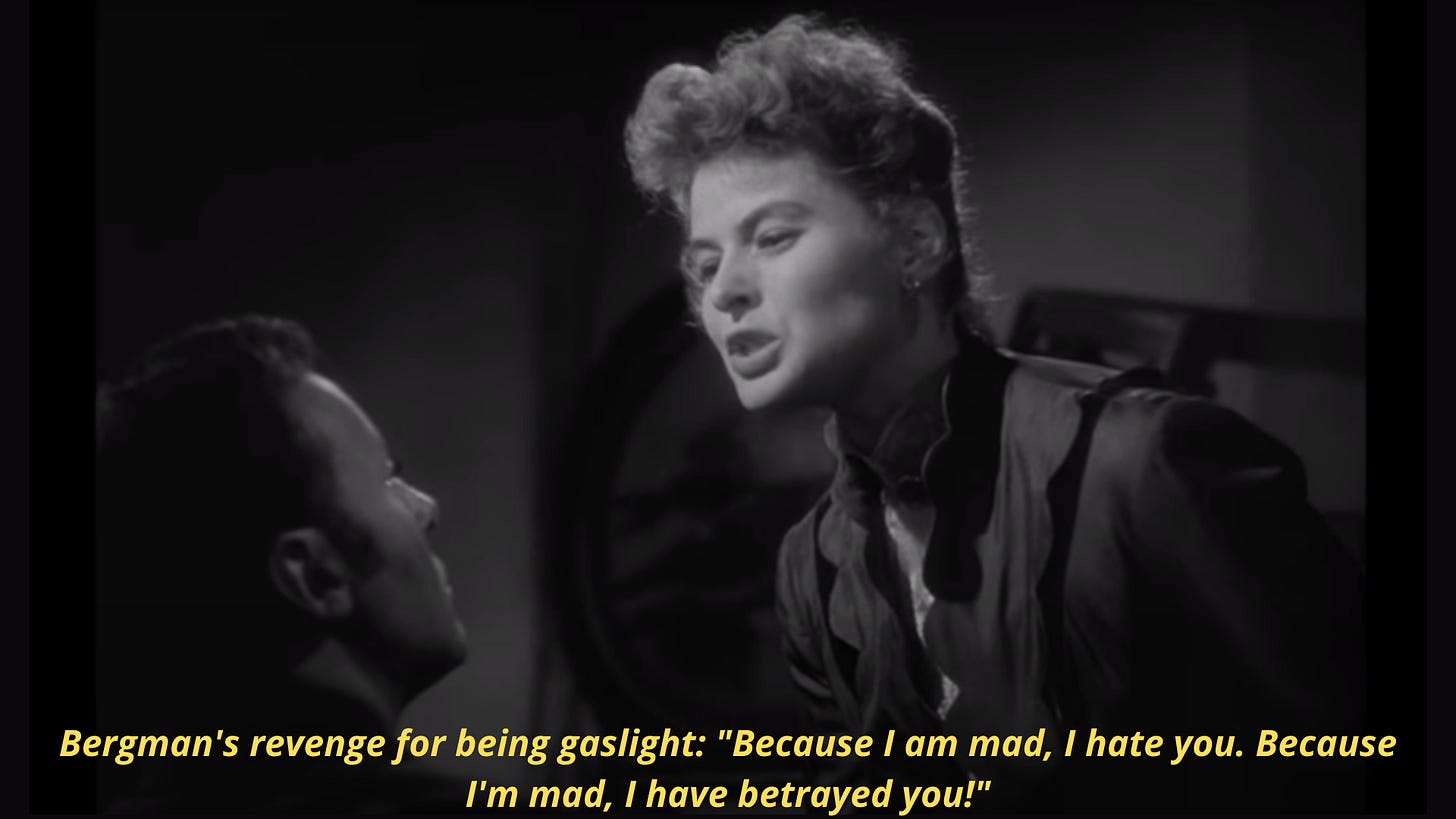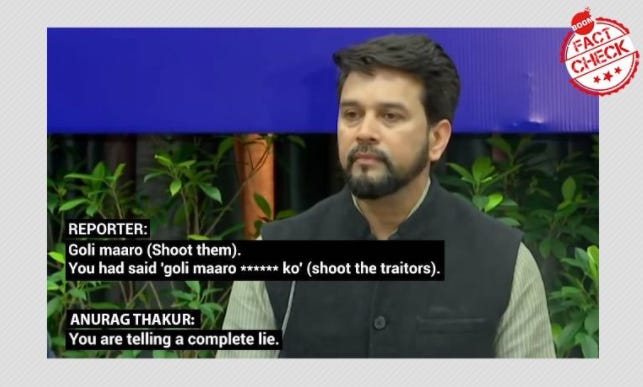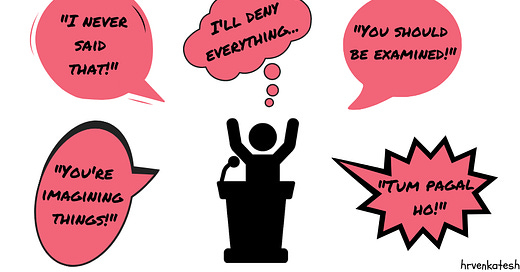
Politicians manipulate us in several ways, and gaslighting is one of them.
I wish we had a better word than ‘gaslighting’ however, because the meaning of it is not at all inherent in the word. It isn’t like those words that sound like their meaning such as ‘splash’ or ‘gurgle’. It doesn’t even evoke accurate imagery. For years, each time someone said ‘gaslighting’, this is what I thought:

Which is a pity, because gaslighting is a powerful word that explains a particularly toxic type of behaviour.
Britannica defines it thus:
Gaslighting is a…technique of deception and manipulation, usually practiced by a single deceiver, or “gaslighter,” on a single victim over an extended period.
It continues:
Its effect is to gradually undermine the victim’s confidence in his own ability to distinguish truth from falsehood, right from wrong, or reality from appearance, thereby rendering him pathologically dependent on the gaslighter in his thinking or feelings.
Once you start looking for it, gaslighting is everywhere. Especially in personal relationships. Here are some examples:
If a wife tells her husband that he is shirking child care responsibilities and he responds by refusing to acknowledge that it’s even happening, he is gaslighting her. (From Vox.com)
If a person who is repeatedly hurt by their partner’s behaviour confronts him with it and he says, “you’re imagining things”, he is gaslighting her.
When someone tells a clear lie and that person responds by saying “you’re crazy, I did not lie”, that’s gaslighting.
Our politics is also filled with gaslighters.

Before we get into it, here’s how the word came to be. It is based on Gas Light, a play by Patrick Hamilton. This mystery thriller was published in 1938, when homes were lit by gas lights, not electric lights.
The play’s main characters are a husband and wife, Jack and Bella, and the large house that they live in. Jack is after some jewels left behind in the house by the previous owner (whom he has murdered).
Bella is unsuspecting. Jack wants to hide his motives for living in the house from her, and he tries to convince Bella that she is going mad.
When she hears his footsteps as he rummages around in another part of the house, he tells her that she is hearing things. When he lights all the gas lights in the house, they grow dim (because they can’t handle the load). But when Bella points this out, he tells her she is imagining things. Slowly, he makes her doubt herself, and eventually convinces her that she is insane.
This story has a happy ending though, and Bella learns the truth about Jack from a detective and turns the tables on him.
(I know, I know. This is a lot of background just to understand why the process of manipulating someone into doubting themselves is called Gaslighting!)
Interestingly, the play was made into a movie twice. The 1944 version stars Ingrid Bergman as the wife. Those interested can watch two short clips on YouTube. In the first clip, the husband convinces Bergman’s character that she is going mad. In the second clip, towards the end of the movie, Bergman gets revenge.
When politicians gaslight us
Real life doesn’t always have happy endings like the film. Politicians repeatedly gaslight us. They do this is in many ways. For example, when we (or the media) call out their wrongdoing or expose their lies, they feign innocence or completely deny everything.
When I asked for examples of political gaslighting on Facebook, a friend sent me this. “Just in the present moment in the US”, he said, there are several examples of gaslighting:
1. COVID-19 is going away.
2. The economy is doing great.
3. Major cities are suffering violent daily riots.
4. Trump is wildly popular. (Look at the boat parades!)
5. There is widespread voter fraud.
6. There is a huge surge in crime.
“Every refutation of these lies”, he said, “is met with ‘you’re crazy/biased/fake’ and ‘who are you gonna believe: me or your lyin’ eyes?’”
In India too, gaslighting seems to be everywhere. On WhatsApp, the journalist Meghnad Bose said an example was Prime Minister Narendra Modi’s speech in Delhi. “where he claimed that his government has never spoken about a (nationwide) NRC, despite his government having spoken about it at least nine times in Parliament”.
Come to think of it, the entire NRC, CAA fight was full of political gaslighting, both by Modi but also by others in the central government including Home Minister Amit Shah.
Yet another example of political gaslighting is Union Minister Anurag Thakur’s denial of his own words in January this year. During the anti-CAA protests in New Delhi in January, he urged people to shoot the protesters. This was captured on video. Yet, Thakur denied he said those words at all a month later at a press conference. “You’re lying”, he said to the reporter who asked him the question.

You can read all about it in my colleague Archis Chowdhury’s report.
Can gaslighting be an unconscious act?
Another friend asked if gaslighting has to be intentional to be viewed as gaslighting. In other words, can politicians gaslight people without realizing it and without the intention to do so? This question has personal echoes for me. I have gaslit people in the past and thought it to be an unconscious act. But gaslighting is a toxic tendency that is learnt. We’re not born gaslighters!
I would say that politicians, who tend to be expert manipulators (it’s in the job description!) almost always gaslight people intentionally. Even claims that they do so unconsciously doesn’t take away the fact that people have been gaslit.
Do people fall for gaslighting?
Yet another friend on Facebook asked if people actually fall for gaslighting. “Or is it that they know [that] politics is mostly about gaslighting (unfortunately) and given that, perhaps the smarter thing to do for an electorate here or elsewhere is to choose the lesser evil, one which can hopefully deliver.”
I have no way to test this, but on reflection, it seems that there is truth to that statement. We’re so cynical that we’ll even accept gaslighting as a necessary part of a politician’s job.
What matters through is that we learn what is being done to us, and that we have a name for it.
Can silence be construed as gaslighting?
What happens when politicians won’t acknowledge their past through a refusal to engage with it?
When for example, the senior-most leader of the executive branch of a government refuses to answer questions about what happened when he was the head of a state?
I believe such a stance is deeply unethical, but not actually an example of gaslighting.
What do you think?
Postscript: Gaslighting is everywhere. However unintentionally, those who deny the caste system in India and casteism are gaslighters. Those who say women are not discriminated against are gaslighters. And so on.
Further reading:
The Washington Post piece with multiple examples of real-life and fictional gaslighting.
The Indian Express on how various members of the Indian government did not acknowledge their statements on NRC/NPR/CAA.
Vox on how to spot when you’re being gaslit.
I wrote this piece because a reader, Abhilash, requested one on gaslighting. What other topics should I cover?




This is great stuff. More people should read it. Gives a good perspective to the prevalent scenario.
Hey Venkatesh. Thanks for this great article. Can you write about how people can debate or talk to a person who gas lights?